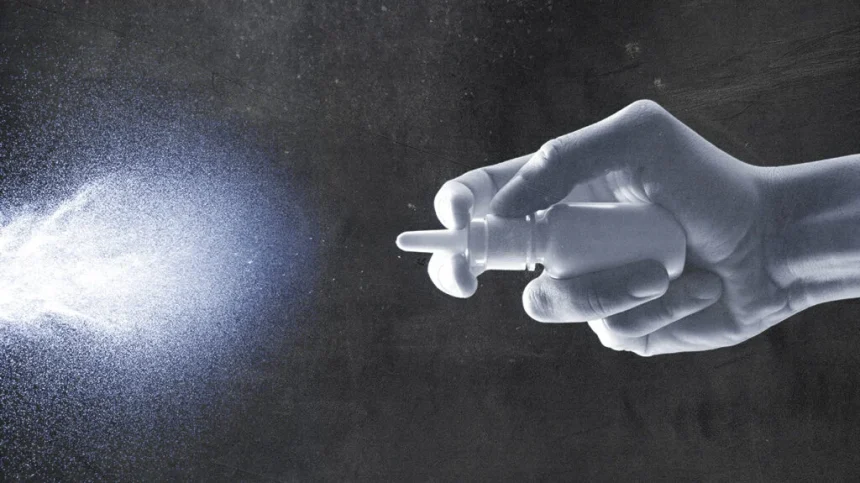The intricate structures of your nose and sinuses are much more than mere passageways for air. They form an essential barrier against pathogens by warming, moistening, and filtering the air before it hits your lungs. Considering that an average adult breathes around 20,000 liters of air daily, the importance of healthy sinuses cannot be overstated. Furthermore, a well-functioning nasal system enhances the sense of smell and taste, integral to enjoying life’s simple pleasures. Hence, keeping your sinuses healthy is vital for breathing and a good quality of life.
Common Nasal Issues
Nasal issues are more common than one might think, with a variety of conditions affecting people of all ages. Allergic rhinitis, commonly known as hay fever, is the usual suspect, with symptoms like sneezing, itchy eyes, and a runny nose that can vary in severity throughout the year. Consulting a specialist, such as a sinus doctor Austin, can be crucial when irregularities occur. Congestion is another widespread ailment, often caused by viral infections or environmental irritants. Nasal polyps are less common but can be pretty troublesome, potentially leading to a loss of smell. These conditions can affect daily life, making concentrating or resting peacefully hard. According to the American Academy of Otolaryngology, awareness and early intervention can significantly reduce the burden of these nasal issues.
Sinus Problems: More Than Just a Cold
Many dismiss sinus issues as mere nuisances, often confusing them with the common cold. However, conditions like chronic sinusitis involve prolonged inflammation of the sinus lining, potentially caused by infections, allergies, or even certain anatomical deviations. Many individuals experiencing these conditions suffer from symptoms such as persistent headache, facial pain, and nasal obstruction. Understanding the specific triggers, whether airborne allergens, pollutants, or inherent structural issues, sheds light on effective management strategies. Left untreated, such conditions can develop into more severe complications, underscoring the necessity for early diagnosis and appropriate treatment.
Causes and Triggers
The causes of sinus issues are many and varied. For some, seasonal pollen leads to sinus flare-ups; for others, it might be certain mold spores or animal dander. Even environmental pollutants, including smoke and dust, can wreak havoc on your sinuses. Some individuals inherit a predisposition to develop sinus issues, necessitating a more tailored approach to prevention and treatment.
Effective Home Remedies for Sinus Relief
Before seeking medical interventions, some people find relief using simple home remedies. These remedies can be especially effective in managing mild to moderate symptoms:
- Use a Humidifier: Maintaining a room’s humidity can keep the nasal passages moist, reducing irritation.
- Stay Hydrated: Drinking plenty of water helps thin the mucus, aiding its expulsion.
- Steam Inhalation: Breathing in steam can help open nasal passages and soothe inflammation.
- Saline Sprays: Nasal irrigation helps flush out allergens and irritants, decreasing symptoms of nasal congestion.
While simple, these remedies can mitigate symptoms and should be considered part of a comprehensive sinus health strategy.
When to Seek Medical Attention
While many sinus issues can be managed at home, specific symptoms require professional evaluation. Persistent symptoms that last more than a week or two, especially those accompanied by a high fever, vision problems, or severe pain, should not be ignored. Professional medical intervention is crucial in these scenarios to prevent the development of more severe conditions. Moreover, a healthcare provider may prescribe specific treatments that are more targeted and effective than over-the-counter remedies.
Preventing Sinus and Nasal Issues
Prevention strategies for sinus issues often involve lifestyle adjustments. One of the most effective preventive measures is avoiding known allergens. Utilizing high-efficiency filtration systems in your home can significantly decrease indoor allergens. Regular handwashing and maintaining good hygiene are crucial in reducing exposure to viruses and bacteria. Regular physical activity is recommended, as it improves immune function and reduces inflammation. These measures, supported by insights from Harvard Health Publishing, can prevent sinus issues from becoming more severe.
The Science Behind Sinus Treatments
The field of otolaryngology has advanced significantly, offering various treatment options for sinus problems. From over-the-counter decongestants and anti-inflammatory medications to prescription nasal sprays and surgical interventions like balloon sinuplasty, each treatment is designed to address specific symptoms and underlying causes. Balloon sinuplasty, for example, is a minimally invasive procedure that can offer lasting relief for individuals suffering from chronic sinusitis. Understanding how these treatments work and their potential side effects and benefits enables patients to make informed decisions regarding their health care.
Conclusion: Promoting Better Sinus Health
Maintaining sinus health is essential for overall wellness and quality of life. Individuals can mitigate sinus issues by recognizing early symptoms, employing preventive measures, and seeking medical advice when necessary. Adopting comprehensive health practices and partnering with healthcare providers to manage symptoms effectively ensures that your sinuses support better breathing, smell, and quality of life without chronic discomfort.






